The Owl and The Angel
The four-part screening program, curated by Eugene Yiu Nam Cheung, is part of the public program of the current exhibition Offerings for Escalante by Enzo Camacho & Ami Lien and takes place every fortnight on Tuesday evenings at 7 pm.
Part 1, 7 May 2024
Paloma Polo, What is thought in the thought of people (2015)
Concerned Artists of the Philippines, directed by Mike de Leon, Signos (1984)
+ Enzo Camacho & Ami Lien in conversation with Eugene Yiu Nam Cheung
Part 2, 21 May 2024
Assia Djebar, La Nouba des Femmes du Mont Chenoua (1977)
Part 3, 4 June 2024
Tracey Moffatt, Night Cries: A Rural Tragedy (1990)
Claire Denis, White Material (2009)
Part 4, 18 June 2024
Layaly Badr, The Road to Palestine (1985)
AsiaVisions, Arrogance of Power (1983)
Ariella Aïsha Azoulay, Civil Alliance: Palestine, 47–48 (2012)
"Both the Hegelian owl and the Benjaminian angel look back at the past; they are the animals of retrospection…The first wants to understand, to grasp the time in the notion; the second—to awaken the dead. These two figures might look melancholic, but in fact they are not; there is actually a kind of very unobvious happiness or enjoyment that can be traced in their psychic portraits."
—Oxana Timofeeva, How to love a homeland (2021), 27.
"Somewhere in the process the flowers wither and the whole world smells of open wounds."
—Trinh T. Minh-ha, Lovecidal: Walking with the Disappeared (2016), 1.
At the core of Offerings for Escalante is Enzo Camacho and Ami Lien’s film Langit Lupa (2023/24), which follows the afterlife of the 1985 Escalante Massacre on the island of Negros in the Philippines. The film weaves together a series of documentary encounters spanning interviews and testimonials, alongside formal and narratological experiments: natural materials foraged on Negros by the artists are transformed into cinematic collages that flash in the vein of Stan Brakhage’s Mothlight (1963), nursery rhymes become songs of commemoration, and the passage of time—which is to say, the risk of forgetting—becomes nullified through children reenacting funerary rituals for those who were martyred. Against the backdrop of Ferdinand Marcos Jr.’s current regime and its attempts to suppress those testifying to structural violence in the Philippines, Langit Lupa explores how the Escalante Massacre endures as both a rupture and inflection point in Negros’ collective memory, whilst also portraying the revolutionary culture that subsists among the people.
Echoing Camacho and Lien’s understanding of official history as a site of struggle and contestation, this screening program is constructed around Walter Benjamin’s ideal of the artist as one who works “not to report, but to struggle” alongside the oppressed; to “not play the role of a spectator, but actively intervene” in changing collective material conditions. Included in this program are films that query the points at which spectatorship transforms into intervention during moments of calamity and injustice. Filmmakers and artists such as AsiaVisions, Ariella Aïsha Azoulay, Layaly Badr, Mike de Leon, Claire Denis, Assia Djebar, Tracey Moffatt, and Paloma Polo provide apertures through which one can locate the will towards emancipation in geographically disparate struggles against imperialism. Here, the stories of colonized subjects from Algeria, Australia, the Philippines, and Palestine ought to be instructive for our own political imagination and its transformation into external action. Wrote Bertolt Brecht: “As soon as the human being appears as an object the causal connections become decisive.”
Text by Eugene Yiu Nam Cheung
Eugene Yiu Nam Cheung is a writer, cultural worker, and founding editor of Decolonial Hacker. In 2023, he was the Asymmetry Curatorial Fellow at Whitechapel Gallery, London, where he curated the exhibition Anna Mendelssohn: Speak, Poetess. Eugene has been a curator-in-residence at Delfina Foundation, and was previously part of the curatorial and public program teams at the Julia Stoschek Foundation and documenta fifteen, respectively. His writing has appeared in places such as e-flux Criticism, Third Text, ArtReview, Griffith Review, Art+Australia, and more. In 2021, he won the International Award for Art Criticism (IAAC). Eugene holds degrees in art history, gender studies, and law from the University of Sydney.
This screening program is made possible by the generous support of Asymmetry Art Foundation.
Paloma Polo
Concerned Artists of the Philippines/Mike de Leon
Paloma Polo, What is thought in the thought of people (2015)
Concerned Artists of the Philippines, directed by Mike de Leon, Signos (1984)
+ Enzo Camacho & Ami Lien in conversation with Eugene Yiu Nam Cheung
Location:
BIKINI Berlin
2nd Floor
Budapester Str. 44
10787 Berlin
(Google Maps)
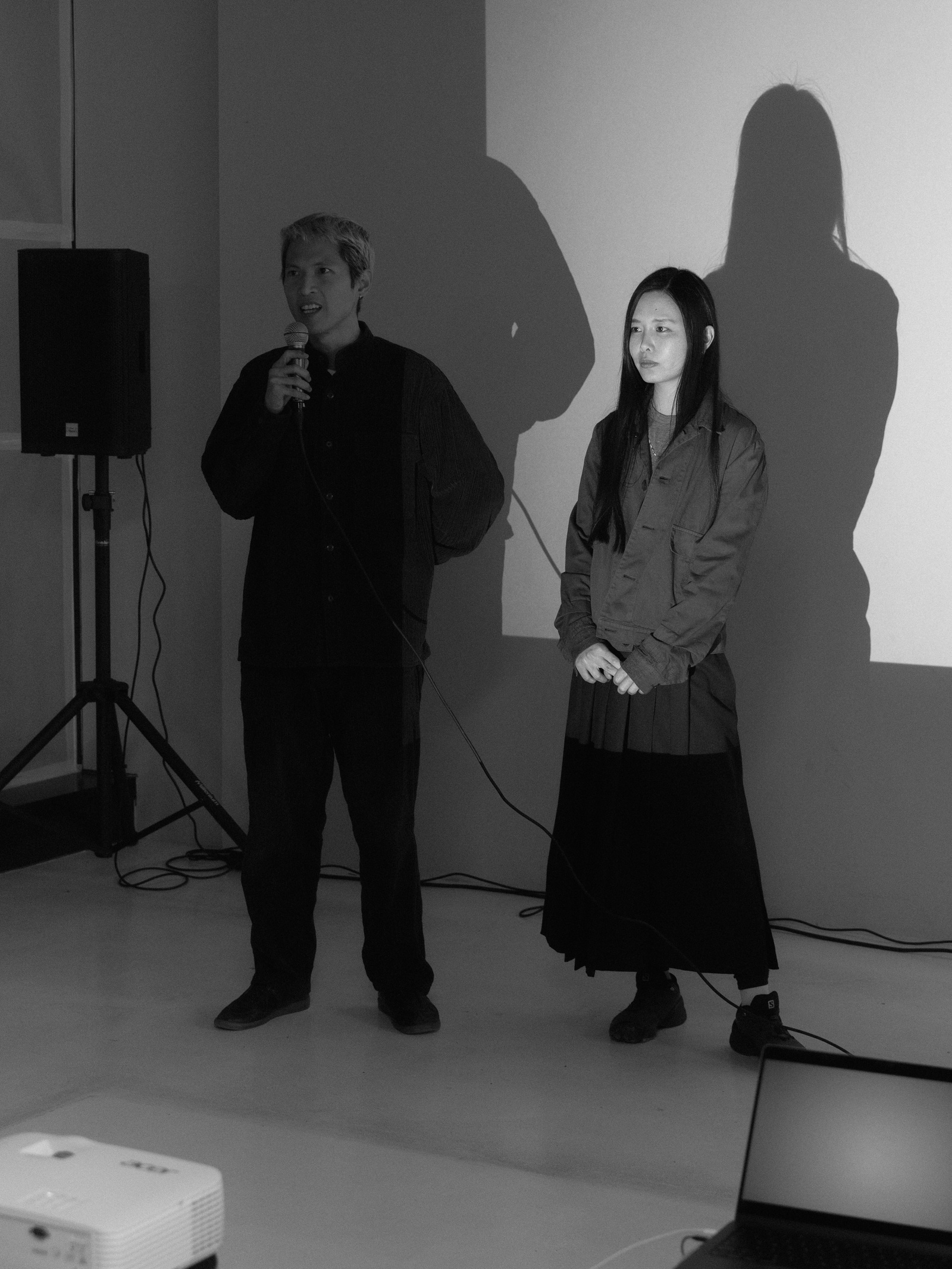
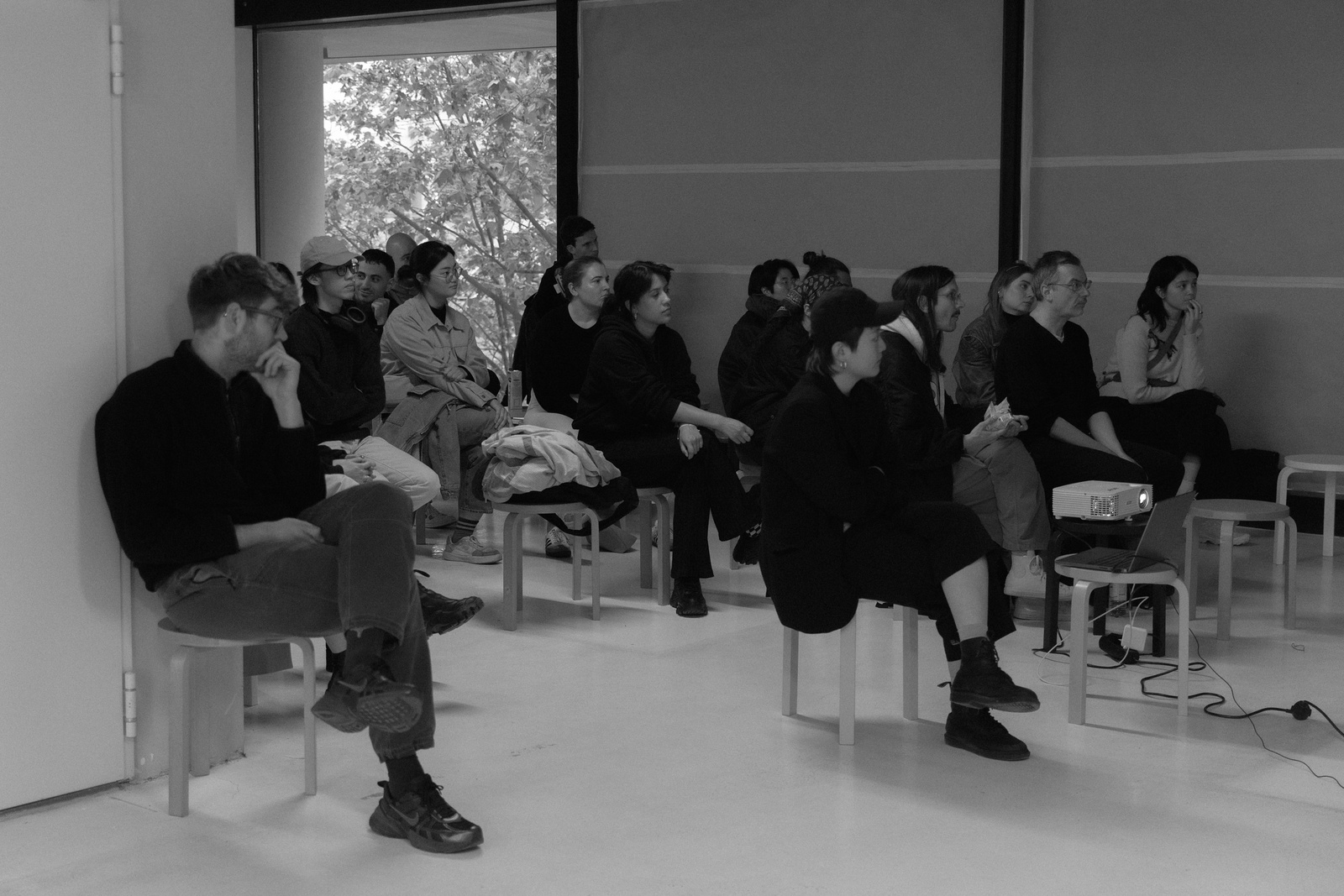
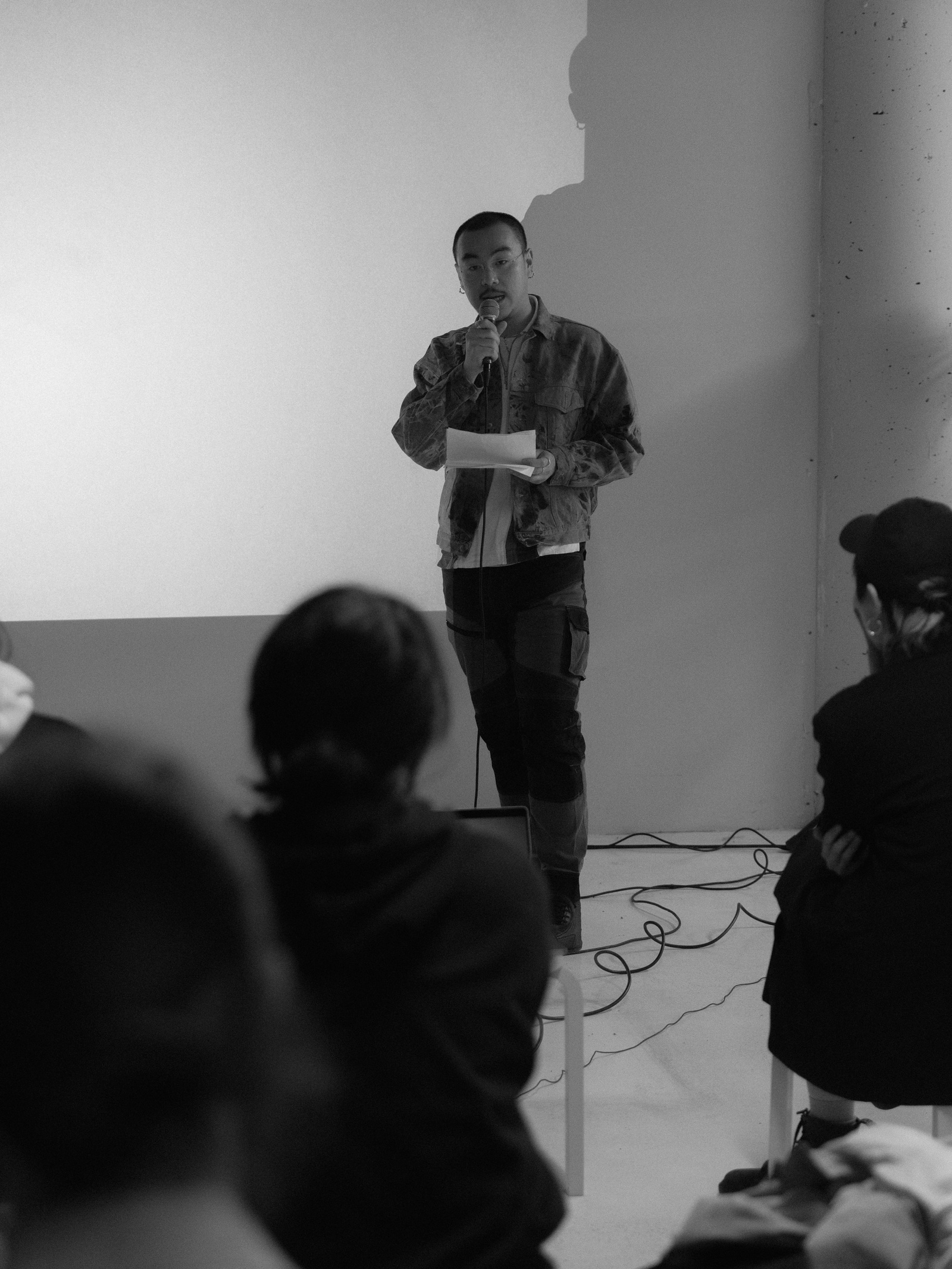
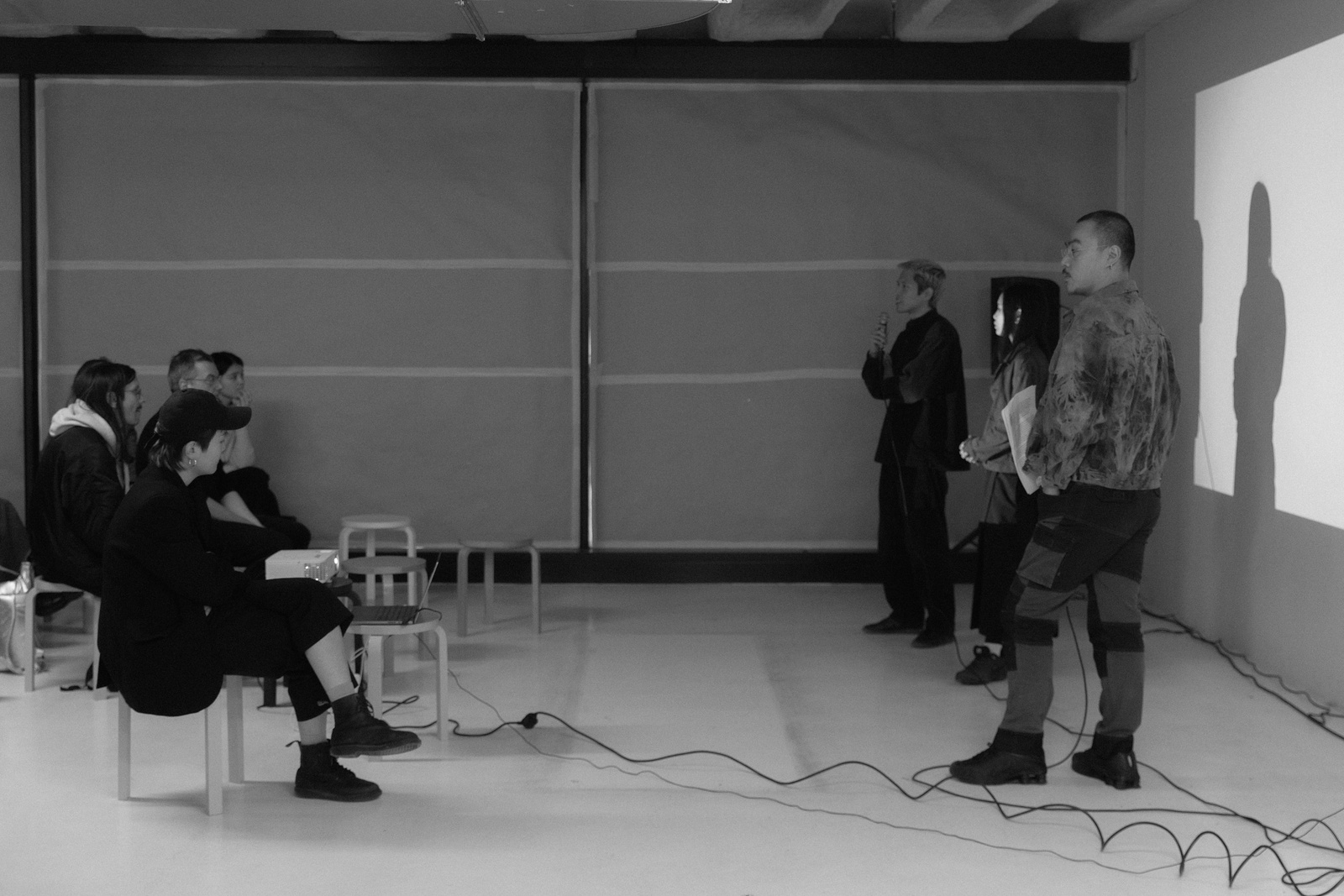
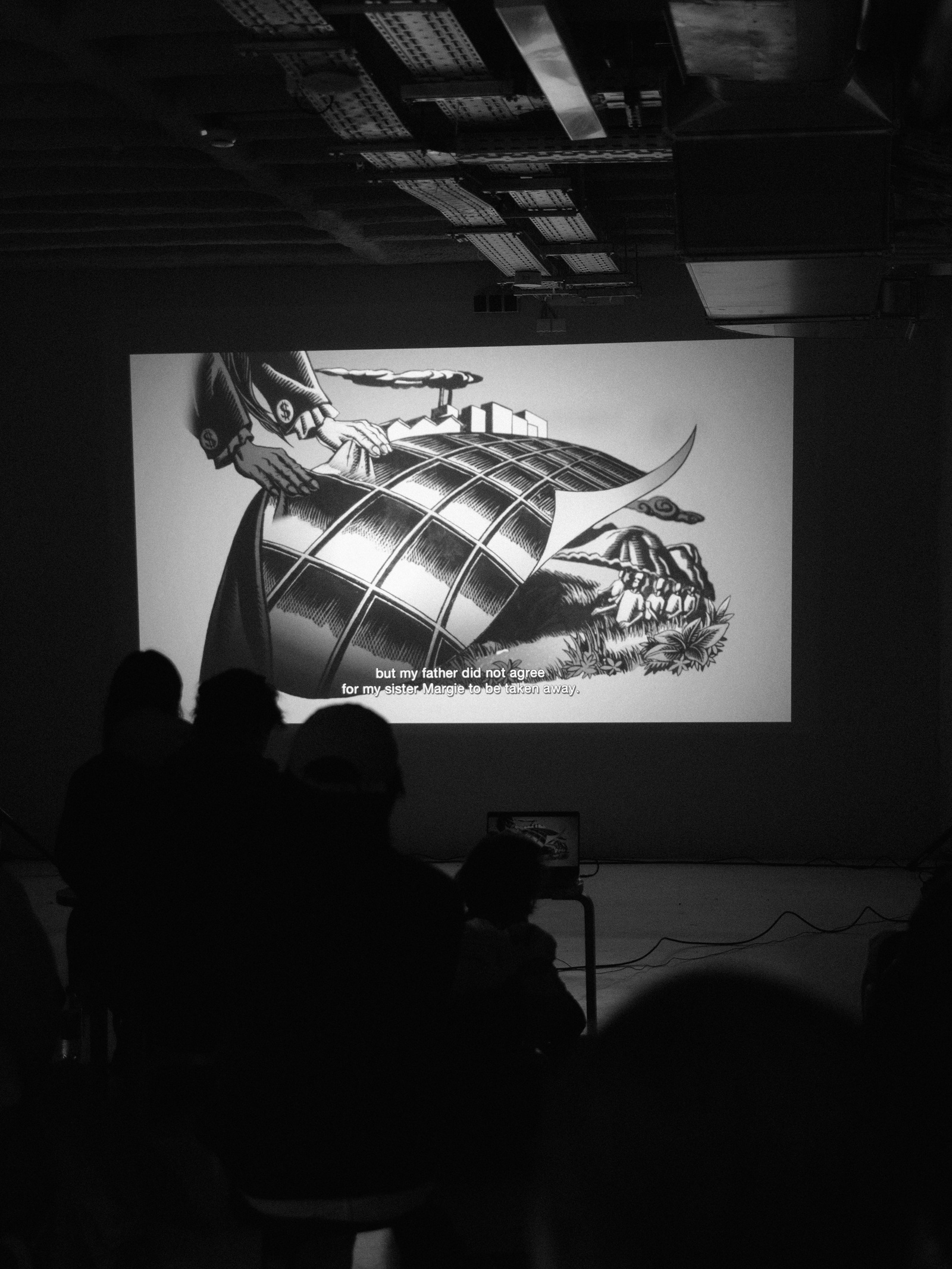
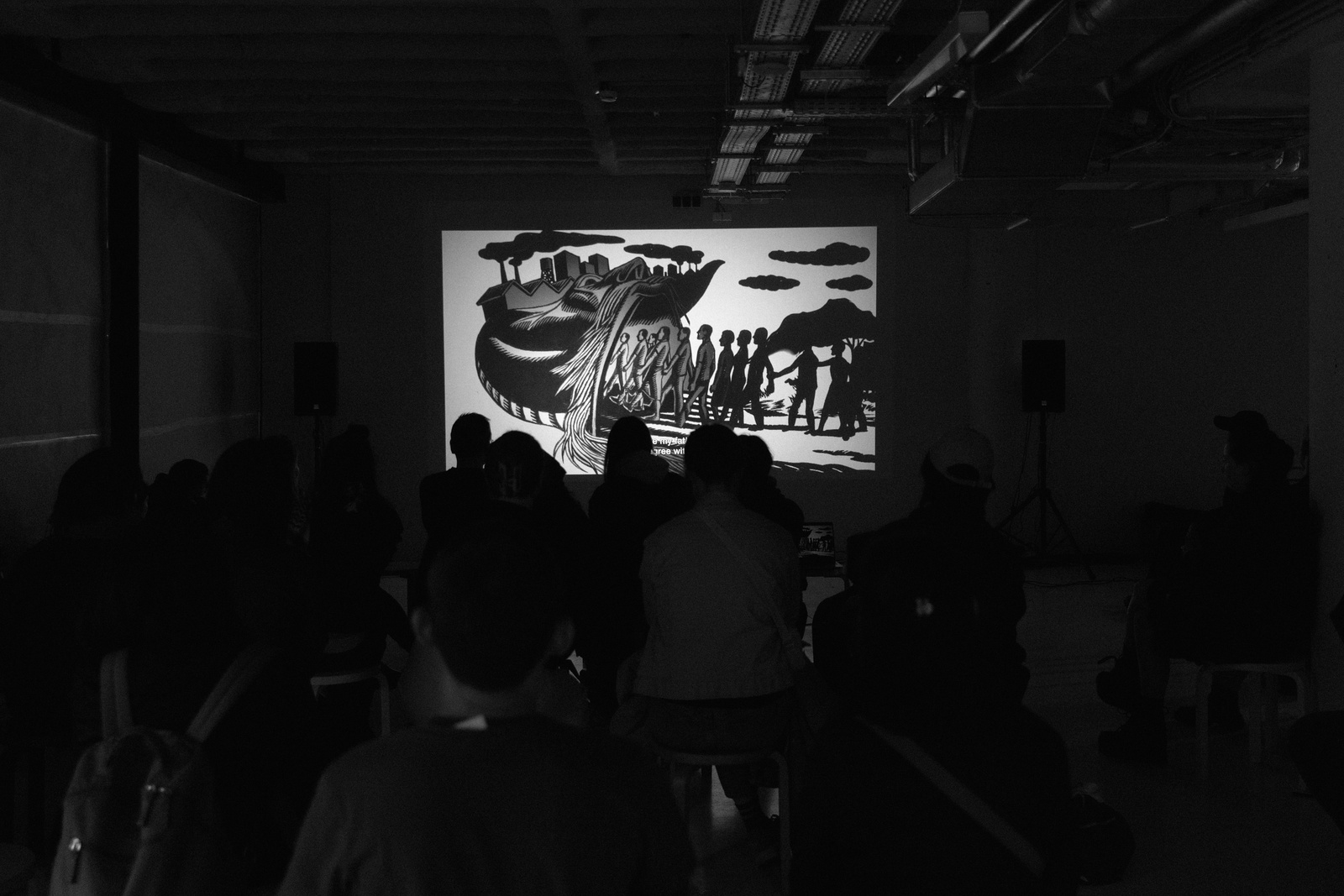
Screening (curated by Eugene Yiu Nam Cheung) and artist talk on the occasion of the exhibition Offerings for Escalante by Enzo Camacho & Ami Lien, CCA Berlin, 2024. Photos: Diana Pfammatter.
Paloma Polo is an artist and independent researcher based in Utrecht. Her practice takes comradeship, interpersonal relationships, and the critical appraisal of institutional archives as sites of inquiry. Polo has staged solo exhibitions at Museo Nacional Centro de Arte Reina Sofía, Centro de Arte Dos de Mayo- CA2M, and Kurimanzutto Gallery, amongst others. She was included in the International Exhibition at the 55th Venice Biennale, and has exhibited in group shows at Turner Contemporary, Museo de Arte Carrillo Gil, High Line Art, Stedelijk Hertogenbosch Museum, and Frankfurter Kunstverein, among others.
Mike de Leon is a director, cinematographer, producer, and scriptwriter. His films oftentimes foreground the class antagonisms, political absurdities, and the desire for belonging in the Philippines. He began making short films in the 1970s and founded the production company Cinema Artist Philippines. Since the release of his début feature film Itim (1976), de Leon has been regarded as one of the most significant filmmakers in the Philippines. Together with Concerned Artists of the Philippines—a coalition of writers, artists and cultural workers founded in 1983, working against the dictatorial regime of President Ferdinand Marcos—de Leon directed Signos (1984).
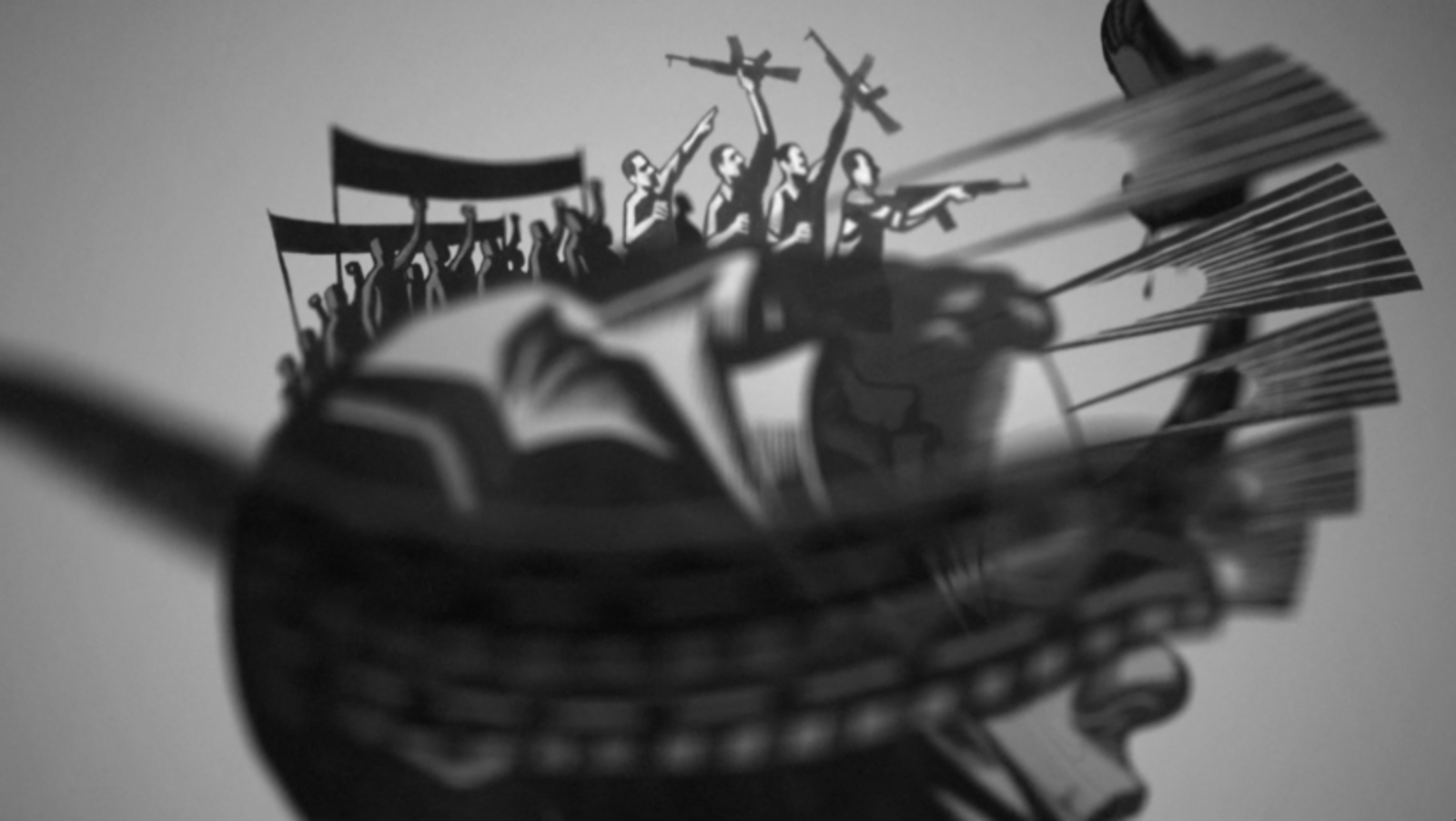
Paloma Polo, What Is Thought in the Thought of People, 2015, film still. Courtesy the artist.
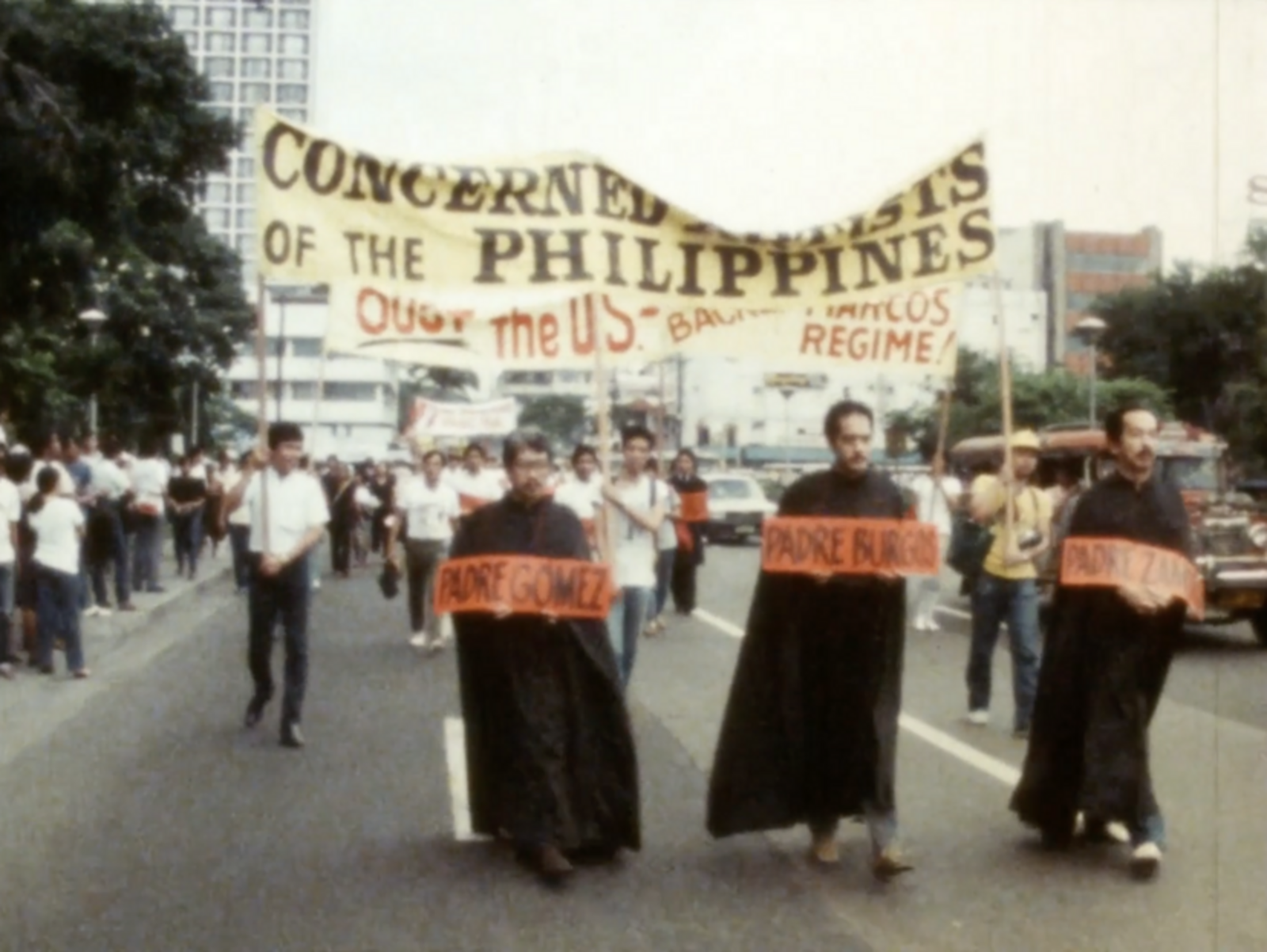
Concerned Artists of the Philippines, directed by Mike de Leon, Signos, 1984, film still. Courtesy Mike de Leon.
Assia Djebar
Assia Djebar, La Nouba des Femmes du Mont Chenoua (1977)
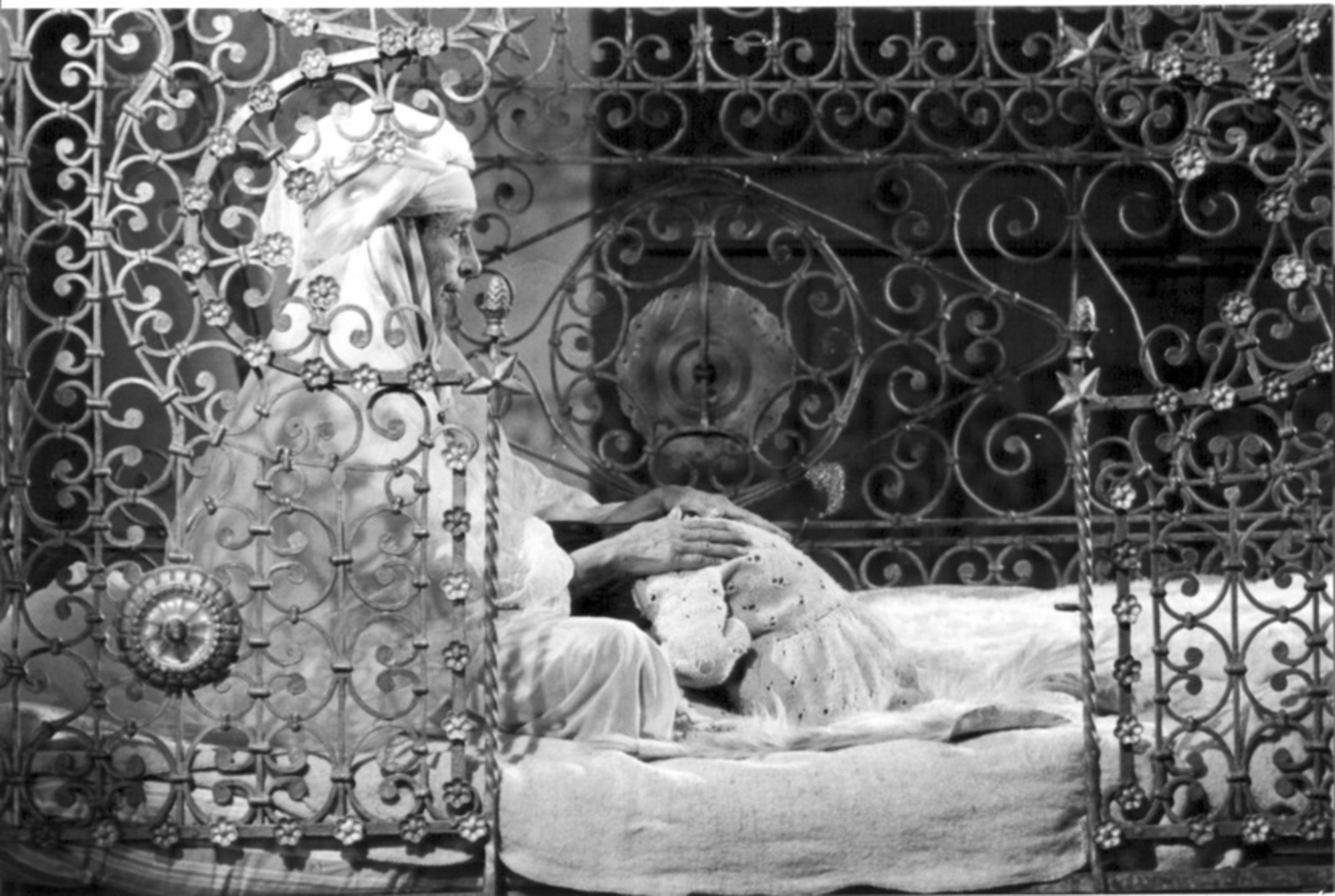
Assia Djebar, La Nouba des femmes du Mont Chenoua, 1977, film still. Courtesy Women Make Movies.
Assia Djebar was an Algerian novelist, lecturer, translator, and filmmaker. Her work imagines and moves towards a genealogy of the “Algerian Woman” which refuses and sits outside of patriarchal and colonial frameworks. Her film La Nouba des femmes du Mont Chenoua (1977) was awarded the International Critics Prize at the Venice Film Biennale in 1979.
Tracey Moffatt
Claire Denis
Tracey Moffatt, Night Cries: A Rural Tragedy (1990)
Claire Denis, White Material (2009)
Tracey Moffatt is an artist working across photography, film, and video. Her works explore the interlocking complexities of race, gender, sexuality, and identity against the unrelenting violence of colonialism in Australia. Her films, including Night Cries: A Rural Tragedy (1989) and beDevil (1993) have shown at Cannes Film Festival, Dia Centre for the Arts, and the National Centre for Photography, Paris. In 2017, Moffatt represented Australia at the 57th Venice Biennale.
Claire Denis is a Paris-based filmmaker and one of the major artistic voices of contemporary French cinema. Her films have explored the psychic and material traces left by French colonialism in West Africa, the disintegration of intimate relationships, and the conflict between cultural displacement and collective memory, among other things.
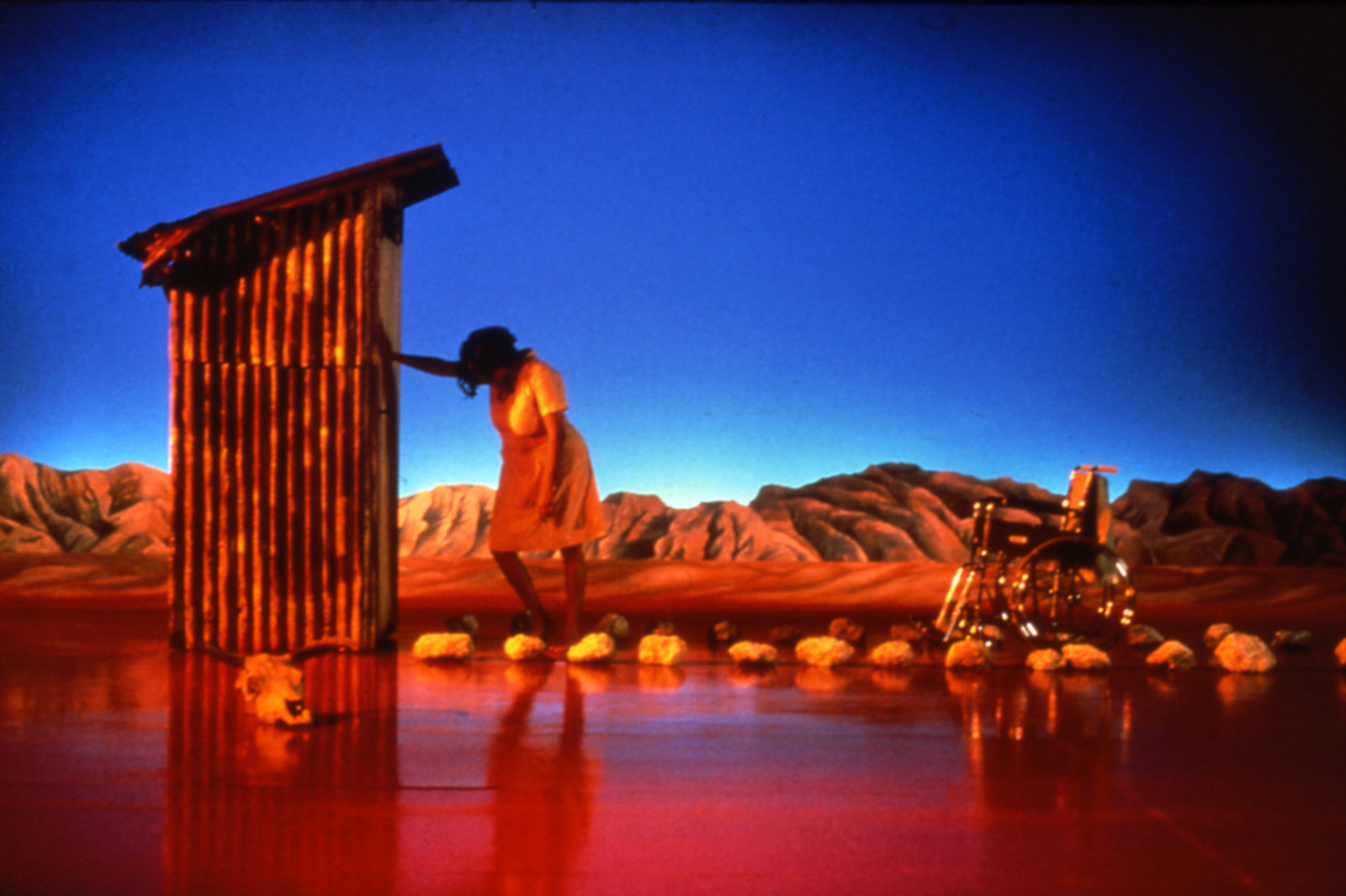
Tracey Moffatt, Night Cries: A Rural Tragedy, 1990, filmstill. Courtesy the artist, Roslyn Oxley9 Gallery, and Ronin Films.
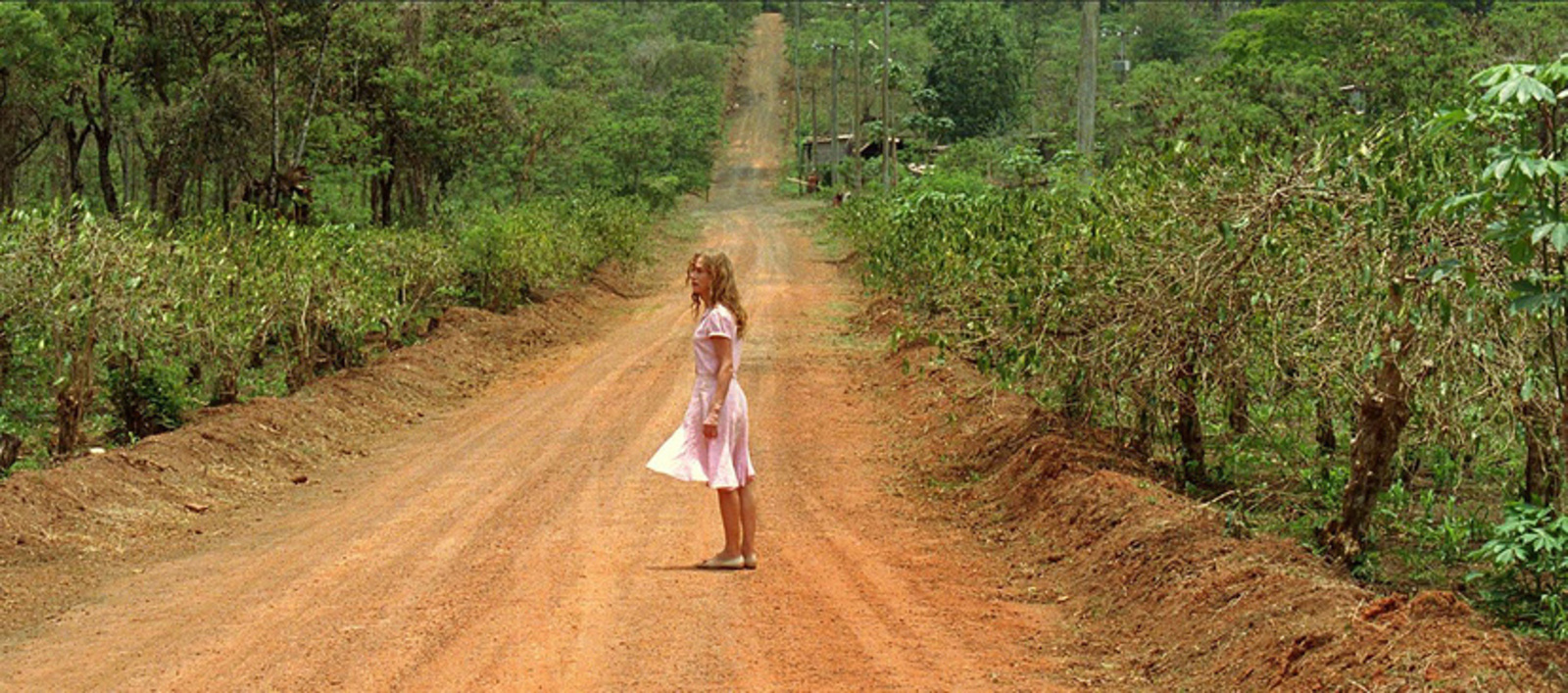
Claire Denis, White Material, 2009, film still. Courtesy Why Not Productions.
Layaly Badr
AsiaVisions
Ariella Aïsha Azoulay
Layaly Badr, The Road to Palestine (1985)
AsiaVisions, Arrogance of Power (1983)
Ariella Aïsha Azoulay, Civil Alliance: Palestine, 47–48 (2012)
Layaly Badr is a Jordanian writer, filmmaker, producer, and film distributor of Palestinian origin. Her short film The Road to Palestine (1985) won German television’s The Golden Lorbeer, the Best Play for Children at the Tunis Arab Television Festival, and the Damascus Television Festival Pioneer Award. She has also won several international awards for her children’s films. In 2024, Badr published her first novel, To The Right of The Heart.
AsiaVisions (c. 1982–1999)—originally named Creative Audio Visual Specialists (CAVS)—was a forerunning political film collective from the Philippines. Founded to encourage the development of documentary film practices and to promote its use as a medium of mass education, AsiaVisions was aligned with the popular movement against the Marcos dictatorship. It was a key organization disseminating counter-propaganda during this period, and used film to promote the struggle against all forms of exploitation and oppression. AsiaVisions created a people’s media that projected the political aspirations of the Filipino people whilst fostering solidarities with those subject to different forms of imperial violence across the Third World. Since its dissolution, the AsiaVisions AV Collection is under the receivership of IBON Foundation.
Ariella Aïsha Azoulay teaches political theory from an anti-colonial perspective, using photography and material culture, at Brown University. Her latest books: The Jewelers of the ummah – Potential History of The Jewish Muslim World (Verso September 2024), La resistance des bijoux (Rot-Bo-Krik, 2023) and Potential History: Unlearning Imperialism (Verso Books, 2019); her latest films: The world like a jewel in the hand – Unlearning Imperial Plunder II (2023), Un-documented: Unlearning Imperial Plunder I (2019); her latest exhibitions: Errata (Fundació Antoni Tàpies, Barcelona, 2019; HKW, Berlin, 2020), and The Natural History of Rape (Berlin Biennale, 2022).
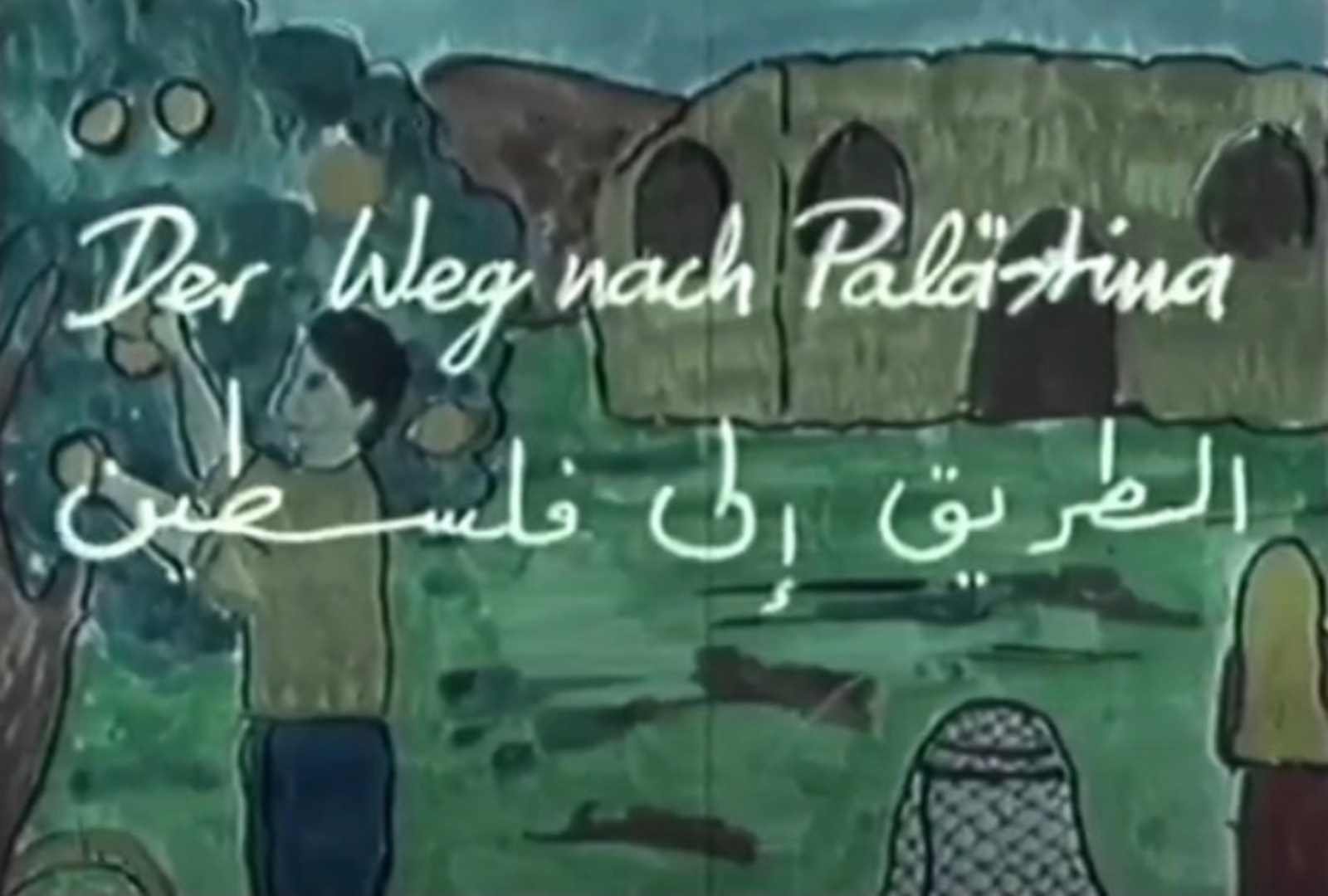
Layaly Badr, The Road to Palestine, 1985, film still. Courtesy the artist.
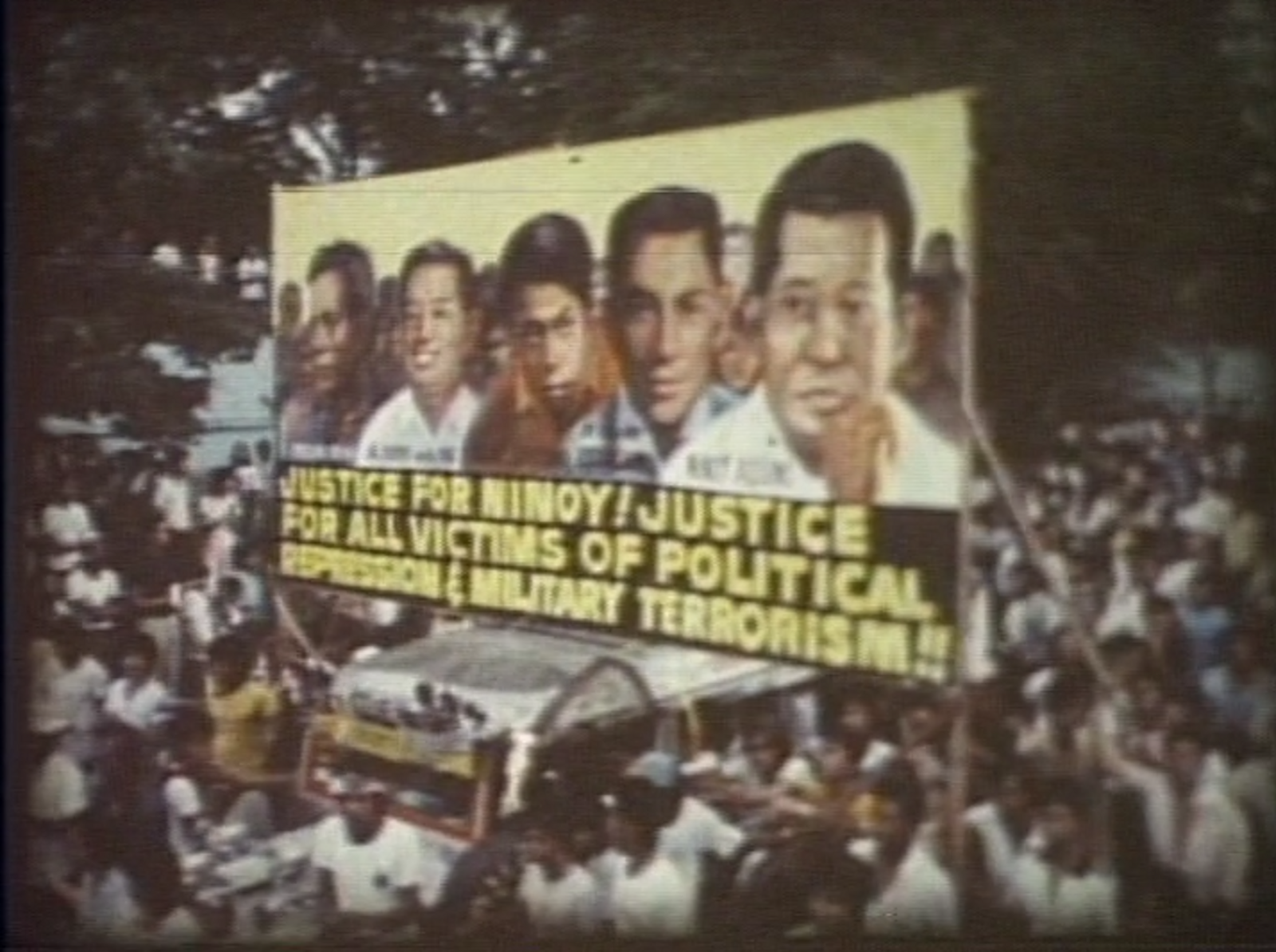
AsiaVisions, Arrogance of Power, 1983, film still, courtesy IBON Foundation.
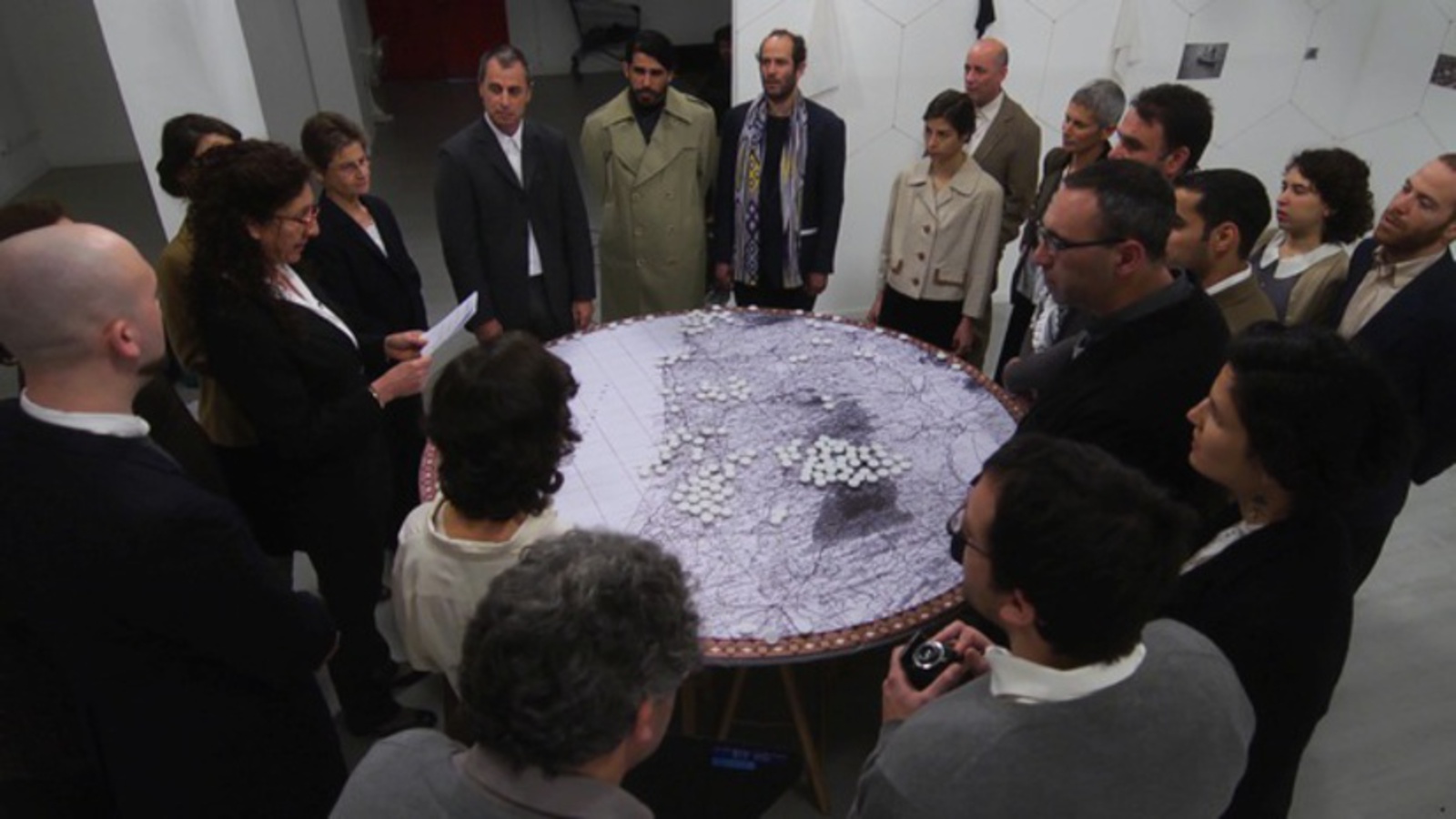
Ariella Aïsha Azoulay, Civil Alliance: Palestine, 47–48, 2012, film still. Courtesy the artist.